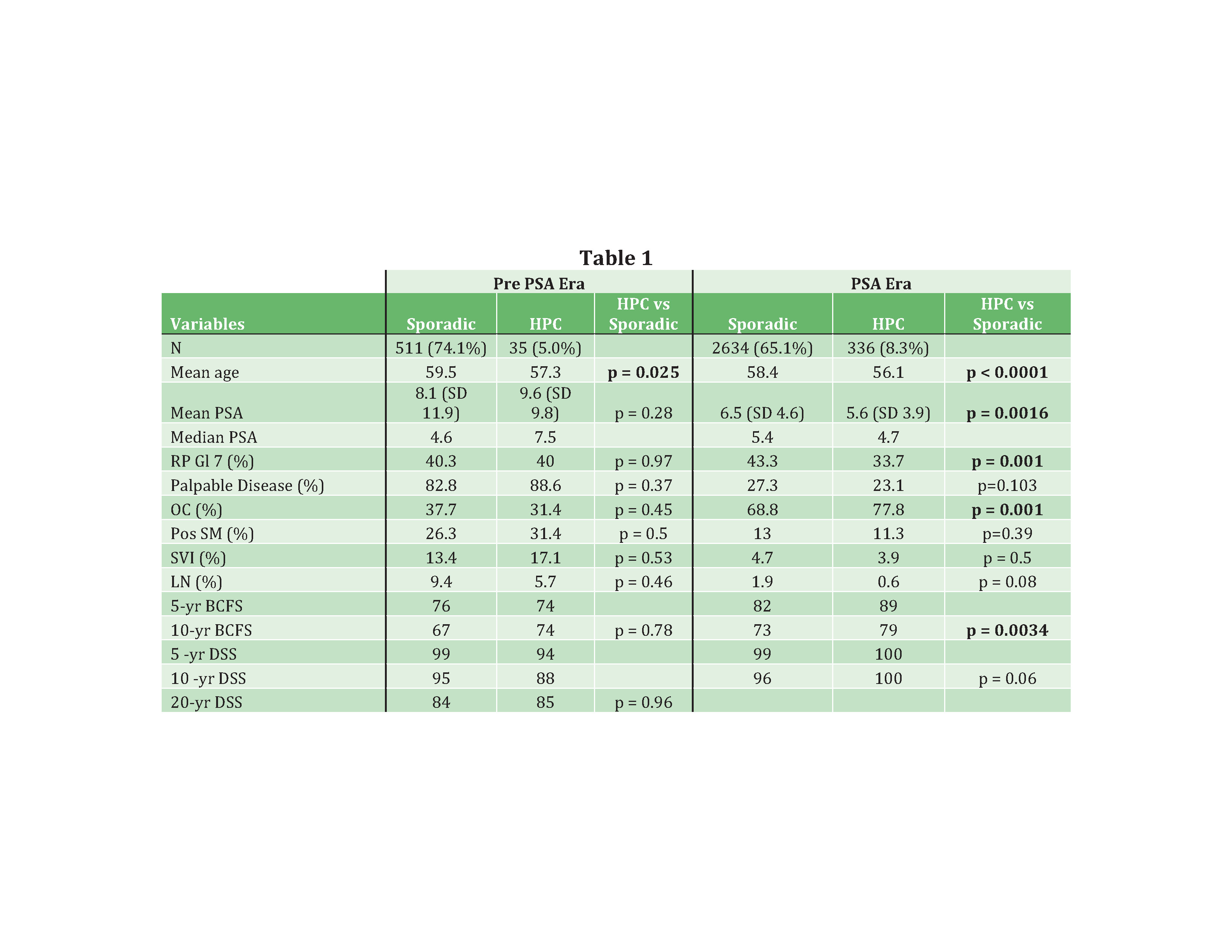|
Back to 2011 Program
Men with Hereditary Prostate Cancer Have Improved Outcomes after Radical Prostatectomy in the PSA Era
John B Eifler, Jr., Misop Han, Sally Isaacs, Elizabeth Humphreys, William Isaacs, Patrick C. Walsh
Brady Urological Institute, Baltimore, MD
Introduction: The impact of PSA testing on stage and oncologic outcome in men with hereditary prostate cancer (HPC) remains unknown.
Materials & Methods: A pre-PSA era cohort of 690 men who underwent radical prostatectomy (RP) by a single surgeon between 1982 and 1989 was compared to a PSA era cohort of 4046 men who underwent RP between 1993 and 2007 and had detailed family history available. Men with sporadic prostate cancer (SPC) were compared to patients with a family history consistent with HPC, defined as a family with 3 generations affected, 3 first-degree relatives affected or 2 relatives affected before age 55.
Results:In the pre-PSA era cohort, no statistically significant difference was found in pathologic stage, biochemical recurrence free survival (BRFS), or disease-specific survival (DSS) between patients with HPC and those with SPC (Table 1). In the PSA era cohort, men with HPC presented at a younger age than men with SPC (p<0.0001), had lower mean PSA (p=0.0016), were more likely to have organ-confined disease (p=0.001) and less likely to have a pathologic Gleason score greater or equal to 7 (p=0.001). Men with HPC had higher 10-year BRFS than men with SPC (p=0.0034) and a trend towards higher DSS (p=0.06).
Conclusions: : Men undergoing RP who meet the criteria for HPC in the PSA era have less advanced disease and are less likely to recur. 
Back to 2011 Program
|